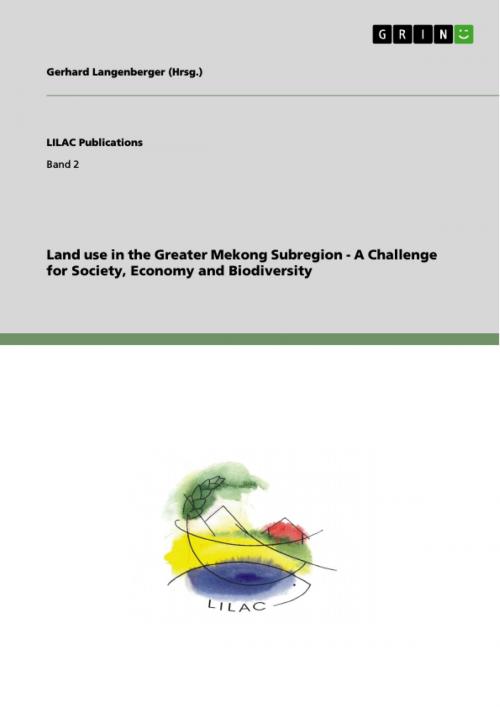Land use in the Greater Mekong Subregion - A Challenge for Society, Economy and Biodiversity
Nonfiction, Social & Cultural Studies, Social Science, Human Geography| Author: | Gerhard Langenberger | ISBN: | 9783640784394 |
| Publisher: | GRIN Publishing | Publication: | December 24, 2010 |
| Imprint: | GRIN Publishing | Language: | English |
| Author: | Gerhard Langenberger |
| ISBN: | 9783640784394 |
| Publisher: | GRIN Publishing |
| Publication: | December 24, 2010 |
| Imprint: | GRIN Publishing |
| Language: | English |
Document from the year 2010 in the subject Geography / Earth Science - Regional Geography, University of Hohenheim, course: -, language: English, abstract: Southwest China has undergone serious changes in recent years. In this respect, it is representative of large areas in South Asia and in particular the 'Greater Mekong Subregion' (GMS) with its 300 Mio inhabitants. The GMS is an informal cooperation of Thailand, Lao PDR, Myanmar, Cambodia, Viet Nam, and the P.R. China (Yunnan and Guangxi Province) to promote the development of the region. While being far off from global developments and characterized by subsistence economy in the past, the region turned out to become one of the most dynamic areas worldwide. A new highway system connects the countries of the GMS, and the area is opened up to international markets. Cash crops such as rubber, which plays already a significant role in local economy, will become even more attractive and speed up land-use cover change (LUCC) with all its consequences for man and his environment. As a consequence of the dynamic development, socio-economic and cultural traditions are challenged, leading to a rapid change or even disappearance of traditional land-use systems. The consequences are manifold and affect people and their livelihood, as well as the century-old cultural landscape with its high (agro-)biodiversity.
Document from the year 2010 in the subject Geography / Earth Science - Regional Geography, University of Hohenheim, course: -, language: English, abstract: Southwest China has undergone serious changes in recent years. In this respect, it is representative of large areas in South Asia and in particular the 'Greater Mekong Subregion' (GMS) with its 300 Mio inhabitants. The GMS is an informal cooperation of Thailand, Lao PDR, Myanmar, Cambodia, Viet Nam, and the P.R. China (Yunnan and Guangxi Province) to promote the development of the region. While being far off from global developments and characterized by subsistence economy in the past, the region turned out to become one of the most dynamic areas worldwide. A new highway system connects the countries of the GMS, and the area is opened up to international markets. Cash crops such as rubber, which plays already a significant role in local economy, will become even more attractive and speed up land-use cover change (LUCC) with all its consequences for man and his environment. As a consequence of the dynamic development, socio-economic and cultural traditions are challenged, leading to a rapid change or even disappearance of traditional land-use systems. The consequences are manifold and affect people and their livelihood, as well as the century-old cultural landscape with its high (agro-)biodiversity.















